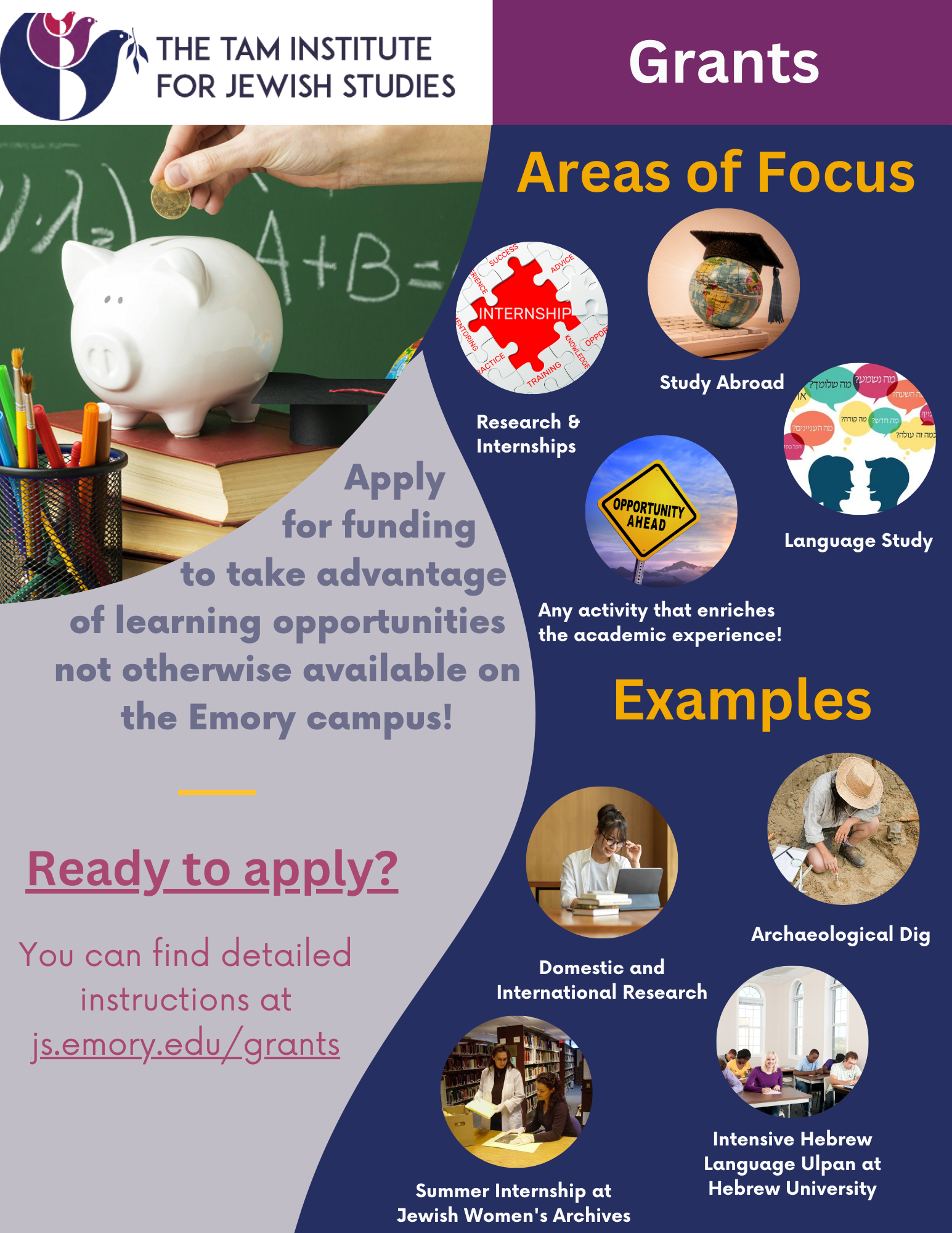Overview
The Tam Institute for Jewish Studies (TIJS) awards grants to undergraduate and graduate students to support activities that enrich the academic experience, such as study abroad, intensive language training, and travel for research or participation in conferences and workshops. Grants for other purposes related to a student’s course of study will be considered on a case-by-case basis.
How Can I Apply?
TIJS will accept grant applications twice every year: in the fall for academic-year grants for graduate students only, and in the spring for summer grants for both undergraduate and graduate students. In special cases, and if funds are available, requests may be considered outside the normal cycle on a case-by-case basis.
All Emory students are eligible to apply for support and must be enrolled during the period covered by the grant. Post graduation activities are thus excluded.
Students who are affiliated with TIJS, including undergraduate majors and minors, TIJS Fellows, and participants in the graduate certificate program, will receive the highest priority for funding, as well as those whose work in another department or program has a significant Jewish Studies focus.
Application Guidelines
- TIJS grants will be awarded to support only academic endeavors related to the field of Jewish Studies
- Applications MUST include:
- a letter stating your academic status (undergraduate or graduate, year in program, major or home department) and fully describing the proposed activity;
- a budget for the overall project (even if you are applying for funds for only a part of a project), using precise estimates from available travel websites and pricing sources;
- a letter of support from the student’s advisor that makes clear the connection between the student’s proposal and the field of Jewish Studies and notes the relevance of the grant support to the student’s academic trajectory.
- TIJS grants are meant to supplement other sources of support and not meant to cover the entire course of activity. Typically, grants are awarded in the $250 - $2,000 range so that TIJS can support as many eligible projects as possible. Therefore, all applications must contain as part of the budget a list of all other funding sources to which the applicant is applying or from which they have already received support. Graduate students, for example, should detail funds they expect to receive or have applied for from their home department and/or from the Laney Graduate School.
- Late or incomplete applications will not be considered as part of the current funding cycle.
- Grant recipients are expected to submit a one-page report on their project within six weeks of its completion.
Summer 2026 Student Application Deadline:
Monday, March 30th
Applications received after the deadline will be considered on a rolling basis until May 1st
SPECIAL NOTE FOR SUMMER 2026 APPLICATIONS
For the latest updates on Emory’s international travel restrictions, visit: https://global.emory.edu/services/travel/international-travel-restrictions.html
Study Abroad
Language Study
Research & Travel
Research trips for theses and dissertation purposes, or travel to attend or present papers at scholarly conferences or other academic gatherings. Grants may also support the cost of supplies and services (such as copying and scanning) related to student research.
Final Report
Successful applicants will be asked to submit a brief report on how they used the funds and how the funds helped advance their research or training, as well as any photos they wish to share from their experience.
